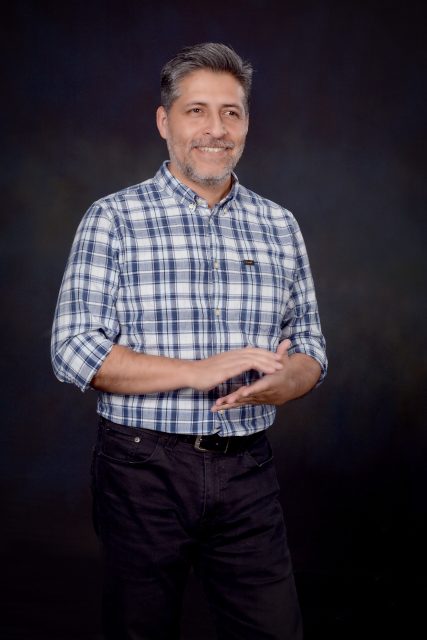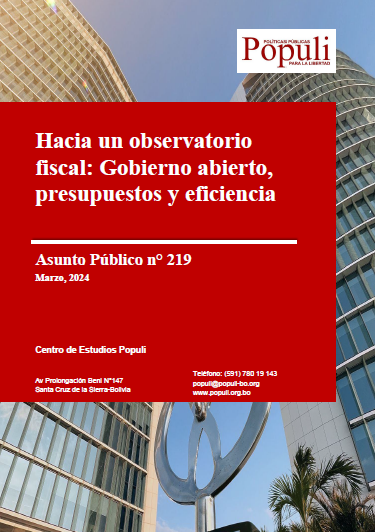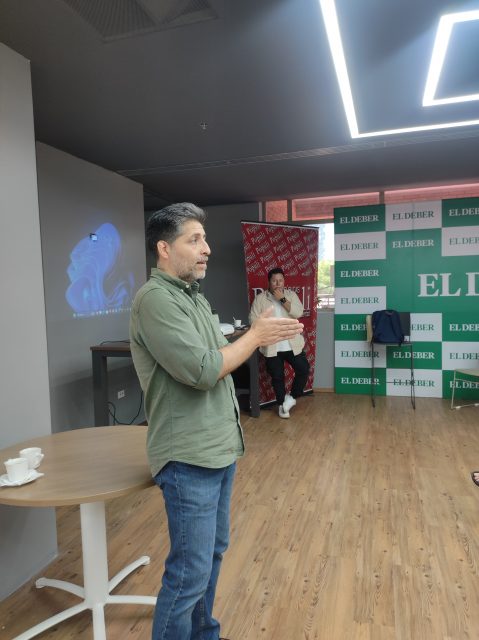
By Sofía Schuchner
Esta publicación también está disponible en español.
For decades, Bolivia has been considered a developing country, with lags in the State’s modernization, including challenges in bureaucracy, digitalization, and universal access to information. This reality places Bolivia, specifically in terms of institutionalism, with low scores in multiple world indices, including the Index of Public Integrity, Transparency Index, and the Index of Economic Freedom.
In response, the Center for International Private Enterprise (CIPE) collaborates with Public Policies for Liberty (POPULI), implementing a project, aimed at empowering private sector actors to advocate for private solutions to public problems, digital transformation, and open government in the Santa Cruz Metropolitan Area. CIPE recently spoke with POPULI’s president and project director, Wilboor Brun, on his experiences with and observations of Bolivia’s economy and its challenges to state modernization.
Note: This interview took place in March 2024, and has been translated and edited for length and clarity.
What is POPULI? What are some of POPULI’s objectives?
POPULI is an independent Center for Public Studies founded by young professionals concerned about the country’s situation and dedicated to promoting Bolivia’s development through public policy. Through research, discussion, and technical analysis of public issues, POPULI generates, disseminates, and promotes public policy and proposals.
By engaging with the public and private sector, POPULI seeks to improve decision-making and promote long-term development, thus establishing the conditions to live in a society that respects freedom and democracy.
Currently, POPULI works at the local level, focusing on issues that simplify processes for small and large private companies and their relationships with local governments. In countries like Bolivia, the rules of the game for entrepreneurship, businesses, and employment depend largely on local governments, where it is common to find lots of paperwork and complicated procedures, full of photocopies, stamps, and various offices. Thus, the private sector experiences this Kafkaesque drama, which creates limitations that deter businesses from formalization, yet require them to obtain permits and licenses through opaque procedures. In short, POPULI collaborates with municipal authorities and private actors, including chambers, professional associations, and other institutions, towards simplified processes, digitalization, and outsourcing services.
Given those objectives, CIPE supported POPULI’s efforts by facilitating a workshop on public-private dialogue, aimed at equipping the private sector with practical tools to effectively advance their business agenda through dialogue.
CIPE drew on its expertise in public-private dialogues, sharing lessons learned from other regional projects, including one in Colombia, and providing a guide to effective locally led public-private dialogue.
This project focuses specifically on the Santa Cruz Metropolitan Area. What is the importance of Santa Cruz in the Bolivian context?
Given economic activity and migration indicators in recent years, Santa Cruz has increasingly greater responsibility in Bolivia’s public policies. Therefore, as the region responds to issues and implements policies, it becomes an example of how these solutions towards improving citizens’ lives will have an impact on a national scale. POPULI thus aims to support the development of these solutions and their applicability to other regions.
As part of its programs, POPULI publishes monthly reports, “Public Affairs.” What are these reports about? What is POPULI’s objective in publishing these reports?
With over 215 “Public Affairs” reports, POPULI shares its research related to the national economic and financial climate and challenges, providing a technical lens and offering solutions and recommendations for public and private sector actors to consider.
POPULI believes it is important not just to complain about issues, but to propose solutions. For this reason, POPULI publishes these reports, hoping to contribute to the solution and make a difference.

POPULI believes that these solutions can be found with high levels of dialogue and through sincere and open debate. Thus, the organization encourages a degree of technicality (supported by the different sciences involved in the problem) that offers a different perspective within this discourse.
In its most recent reports, POPULI touched on a variety of issues directly related to their work. In February and March, POPULI discussed Bolivia’s fiscal regulations and the importance of fiscal observatories to provide oversight and apply norms in the budgets. In April, POPULI published a report on Bolivia’s ranking in the Index of Economic Freedom. Through these analyses, POPULI also looks at models and examples from other countries, such as Chile, to recommend viable solutions to Bolivia’s issues.
What role do journalists, publicists, and influencers play in these public debates? How does POPULI engage with these actors?
For POPULI, the participation of journalists, publicists, and influencers is important since these actors determine how the information is reliably conveyed to the public, so that they understand the different aspects of proposed solutions and the public debates. In the era of social media, these roles are even more critical as people can easily find a diverse range of opinions, which have value, but often lack technical elements or in-depth research of these issues.

In response, POPULI facilitates economic workshops for local journalists and editors. In a recent workshop, POPULI emphasized the importance of collaboration between the economics and journalism sectors to improve the public’s understanding of the country’s economic performance in both the private and public sectors.
Given the immense attention to social media platforms, POPULI also took an active role in disseminating content through its accounts. Based on its economic reports, POPULI creates and shares videos explaining in quick and easy terms the country’s economic situation and public policies. In December and January, for example, POPULI published a series of videos explaining its report, “A Look at the 2024 National Budget,” sharing its analysis of the 2024 national budget and the country’s projections.
Through these efforts, POPULI aims to combat misinformation and support greater access to public information related to economic and public expenditure issues.
